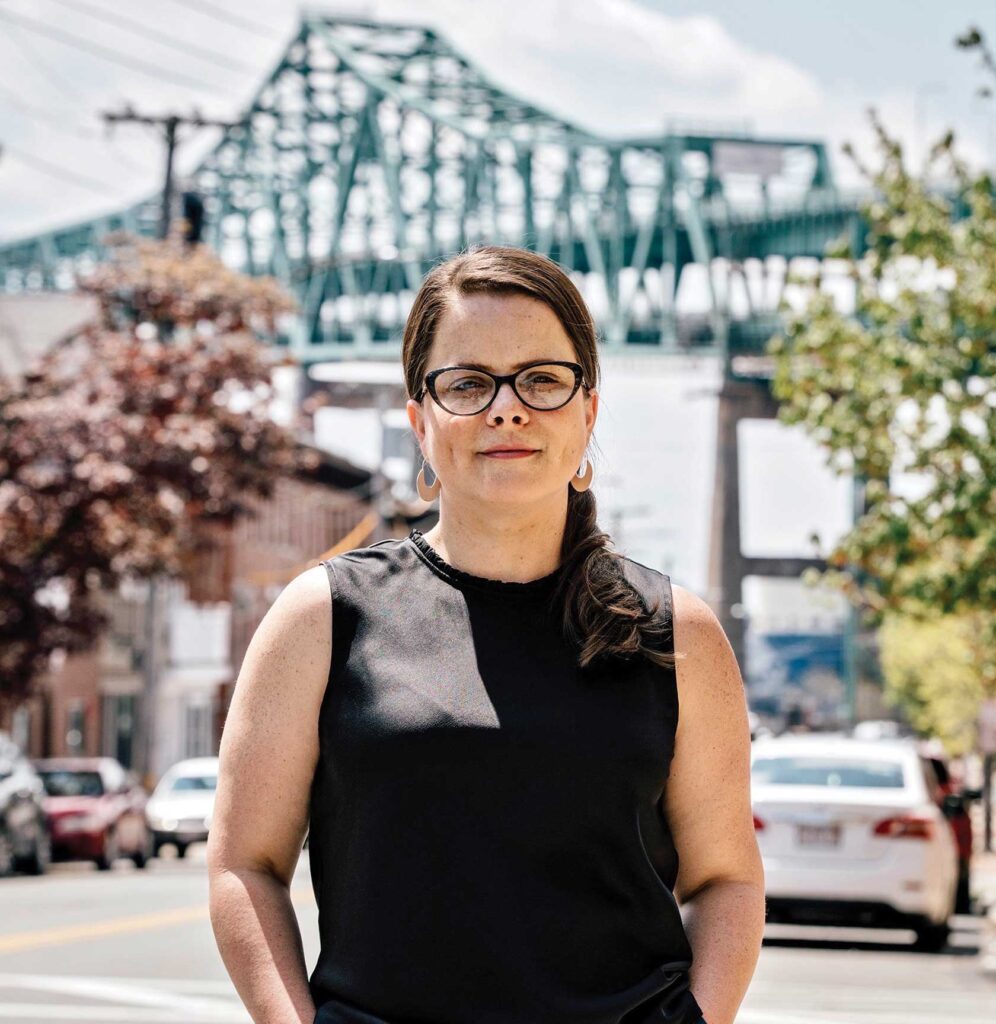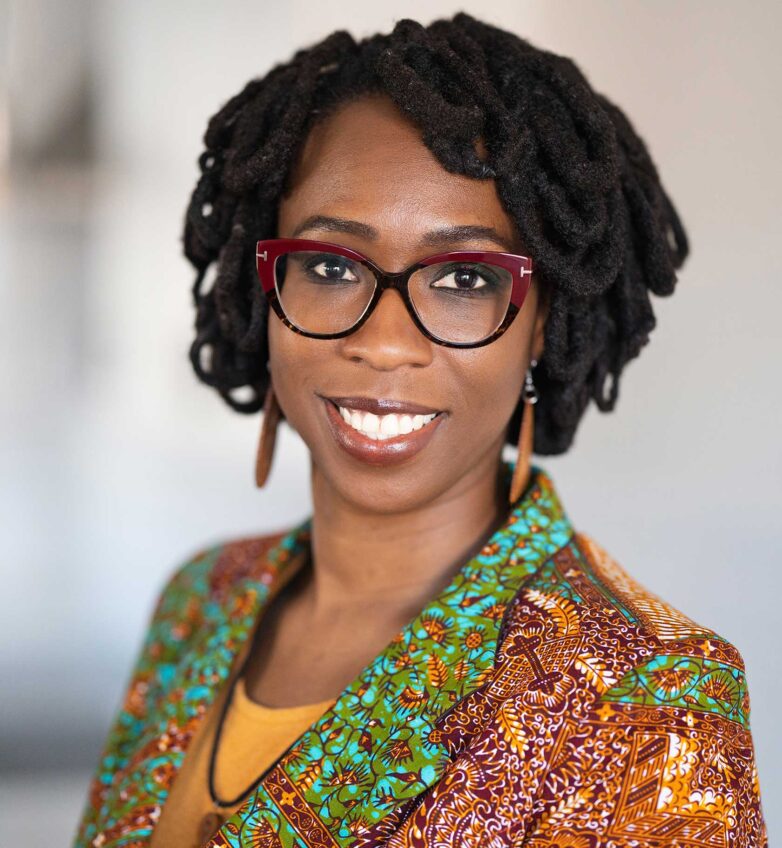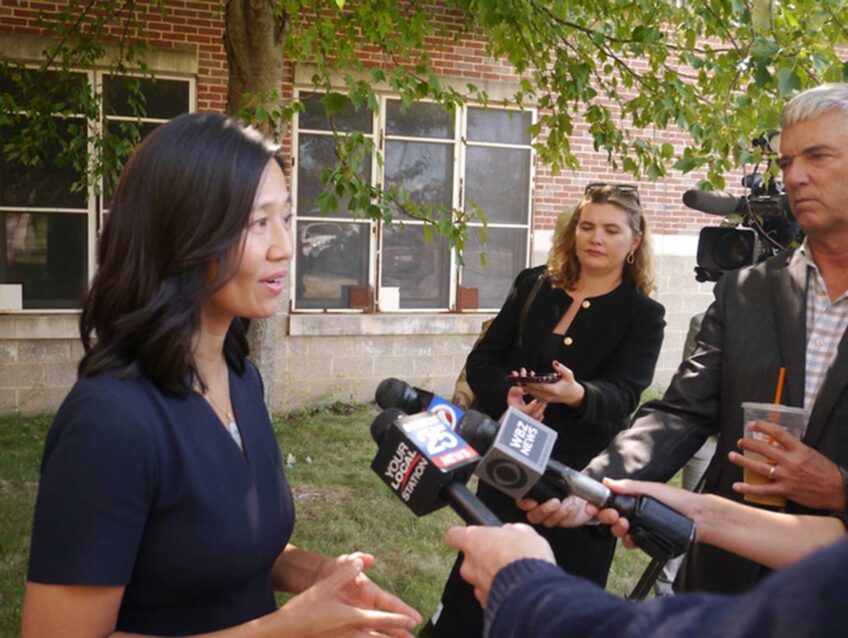
An ongoing tour of listening sessions with the state’s first undersecretary of environmental justice and equity aims to hear directly from community members to better address their concerns about those issues.
María Belén Power, whose position was created in February, began the tour in Chinatown Aug. 21, hearing from almost 30 residents about their concerns around extreme heat and lack of green spaces.
“The purpose that I have in mind is really to listen to the local issues so that they inform my own strategy internally, not only within my office, but across agencies,” Power said.
The tour comes as part of a broader series of environmental justice efforts in the state government. The new state budget, signed by Governor Maura Healey in early August, creates seven new environmental justice positions within the Executive Office of Energy and Environmental Affairs, the state secretariat that serves everyone from farmers and residents looking to spend time outdoors to energy consumers and power companies.
Lydia Lowe, executive director of the Chinatown Community Land Trust, the organization that partnered with the state to organize the listening session, said she’s hopeful that Power’s role and the tour can help smooth out some of the bureaucracy that can hamper environmental justice work.
“I think everybody at the different levels of government, they’re talking about the same kinds of priorities, but often what’s preventing things from happening is that bureaucracies in our systems are just not set up to accomplish the things we’re trying to do,” Lowe said.
While many of the concerns that residents expressed are more directly addressed at the local level, Power said she hopes to be able to use the feedback to shape which pots of federal dollars the state seeks.
“For example, extreme heat and tree canopy can translate into a focus on urban forestry,” Power said. “Making sure that we’re going after federal dollars, as many as we can to implement these projects, would address those issues.”
Lowe said she hopes it can also help adjust regulations to streamline projects that would help environmental justice communities, for instance, a community microgrid — a system of solar panels and batteries that would help Chinatown generate green electricity while also making it more resilient if there is a blackout.
“There are a lot of state regulatory issues that make those kinds of projects challenging, and so we’re also hopeful that there can be a little bit more of an attitude from the state of working with local communities to solve some of these problems,” Lowe said.
The tour — which so far has three planned stops, the one in Chinatown, one in Springfield, and a third in Mashpee — doesn’t currently have sessions scheduled in Roxbury, Dorchester or Mattapan, but Power said she plans to make stops there.
“I’m certainly happy to schedule one in Roxbury or Dorchester just to make sure that we are responsive and accessible to people,” Power said.
Dwaign Tyndal, executive director of Alternatives for Community and Environment, an environmental justice organization based in Roxbury, said he thinks the process could be effective but wants to ensure there’s execution and follow-through.
“I have moderate hopes,” Tyndal said. “I mean, I think intentions and execution could be as far, far apart as anything else, so we’ll see as time goes on. How does that look in real time?”
Some of the efforts he’d like to see are around enforcement of already existing laws and regulations, like the Next-Generation Roadmap Bill, which was passed in 2021 and identified environmental justice populations in the state, codifying environmental justice under state law.
“We really want to see how that environmental bill will be enforced by the state,” Tyndal said. “We have longstanding issues relative to the impacts of air quality on our public health. We have issues of heat islands.”
These listening sessions inform residents of what resources already exist, he said.
“I think the good thing about the listening tour is to kind of remind residents, stakeholders, local politicians that we have existing laws on the books that could be impactful,” Tyndal said. “Now we have to see how the state is going to move regarding those issues.”
Power said she thinks the new environmental justice positions in the state’s government will help coordinate the efforts of various agencies so that they are aligned.
“The spirit of it is to embed environmental justice into everything we do,” Power said. “I can be helpful in guiding the agencies, but what is also really helpful is when people are embedded in each agency.”
She said the new roles also aim to increase accessibility.
“It means having people that are accessible and not just me going when I want to go, but also being a resource for people — for residents, for community organizations, for neighborhoods — that our office is accessible and that we are here to really protect the residents that have been most impacted by environmental burdens,” Power said.
Tyndal said holding listening sessions is good but won’t mean much if there isn’t leadership by officials in roles like the one Power holds, all the way up to Healey’s office, to address the concerns expressed.P
“I think it’s good community politics,” Tyndal said. “The execution is after you get this information, how do you utilize it?”




